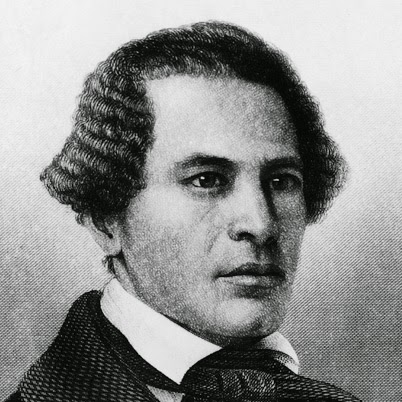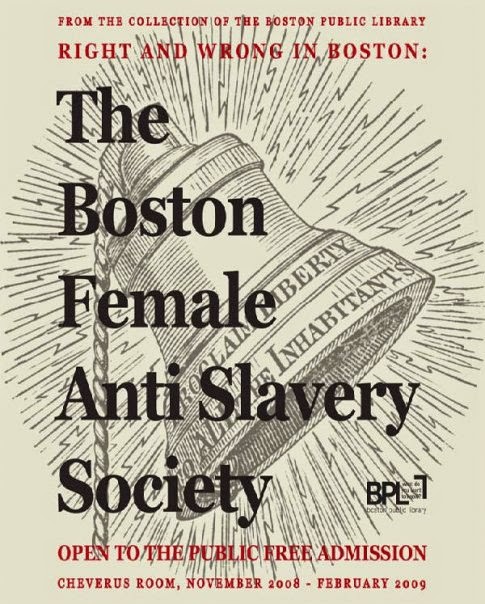|
William Wells Brown
The following year, the United States passed the Fugitive Slave Act, and - for fear of his and his family's safety - Wells stayed in England, only to leave in 1854 when his freedom was purchased. During his time in England, his daughters gained the education he never had, and Brown became a prolific writer in many genres (including plays and travel writing). He also documented the text of many songs sung at Anti-Slavery meetings in a compilation called The Anti-Slavery Harp; A Collection of Songs for Anti-Slavery Meetings. (It is also worth while mentioning that his personal slave narrative, published two years after Douglass's, was also a US bestseller, second to that of Frederick Douglass's.) Boston Female Anti Slavery Society
"Believing slavery to be a direct violation of the laws of God, and productive of a vast amount of misery and crime; and convinced that its abolition can only be affected by an acknowledgement of the justice and necessity of immediate emancipation, - we hereby agree to form ourselves into a Society TO AID AND ASSIST IN THIS RIGHTEOUS CAUSE AS FAR AS LIES WITHIN OUR POWER".
This particular group was interracial, and provided further momentum for other anti-slavery societies at the time, including the Salem Female Anti-Slavery Society (which was begun by a group of Black women, and expanded to become interracial after 2 years).
1 Comment
|
Details
Writings, musings, photos, links, and videos about Black Artistry of ALL varieties!
Feel free to drop a comment or suggestion for posts! Archives
May 2024
|
Member Login
Black concert series and educational programs in Boston and beyond



 RSS Feed
RSS Feed










